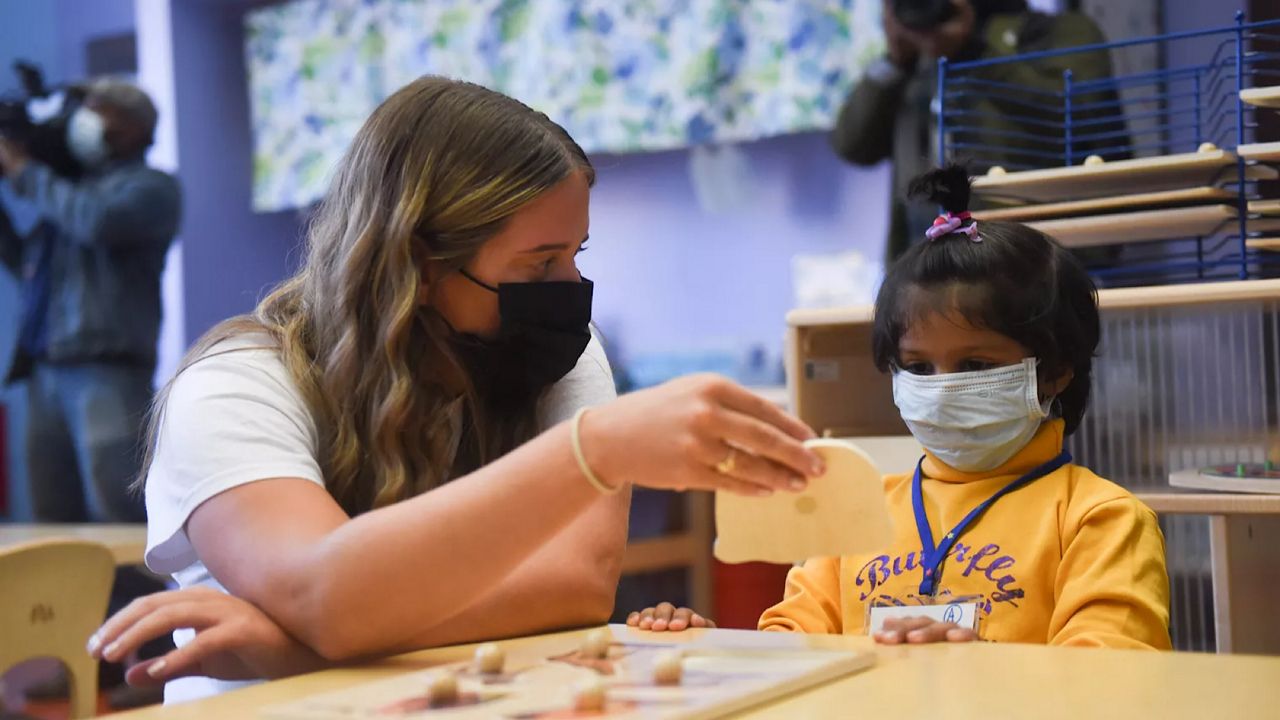State lawmakers are on track for an agreement that would expand pre-kindergarten programs across New York while also boosting direct aid for education by $1.4 billion annually over the next three years, a legislative source familiar with the talks said.
The agreements for school spending also include a freeze on tuition increases at the state's public colleges and universities, as well as the City University of New York system. And lawmakers have agreed to a $500 increase for qualifying students in the Tuition Assistance Program.
The budget is also expected to provide hundreds of millions of dollars in relief for renters, small landlords, and homeowners with qualifying incomes through a property tax "circuit breaker." To pay for it, New York officials are considering billions of dollars in tax increases primarily falling on the state's wealthiest residents.
But a broader agreement on a state budget after lawmakers huddled for hours on Saturday is yet to be reached. The state's spending plan is now four days late, though lawmakers are expected to pass some agreed-to budget bills on Monday.
Disagreements remain over the creation of a $2.1 billion fund for workers not included in federal stimulus aid last year to help people who lost their jobs due to the pandemic. The fund would primarily benefit undocumented workers, and suburban and upstate Democratic lawmakers have raised concerns with the proposal.
Another source familiar with the talks said lawmakers have not made any significant progress on reconciling tribal exclusivity agreements with a push to legalize mobile sports betting. If an agreement cannot be reached, a large swath of upstate New York residents would not be able to participate in mobile sports, including the city of Syracuse.
Still, there are deals in place that would restore $400 million in personal income tax cuts aimed at middle-income earners. And lawmakers are backing $500 million in property tax relief for those who earn less than $250,000 -- affecting about 1.3 million New Yorkers.
For renters, lawmakers are moving toward $2.4 billion in tenant and small landlord assistance, as well as $600 million in homeowner aid. The budget would also incldue $100 million to convert hotels and vacant property in affordable housing units.
Public housing aid is expected to reach a combined $325 million for New York City and the rest of the state.
